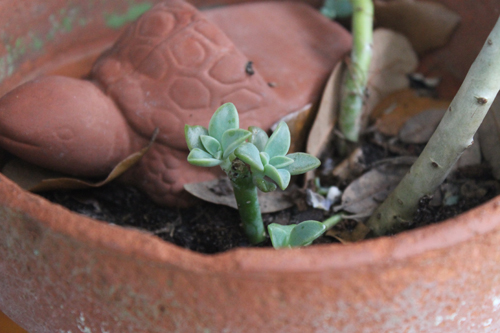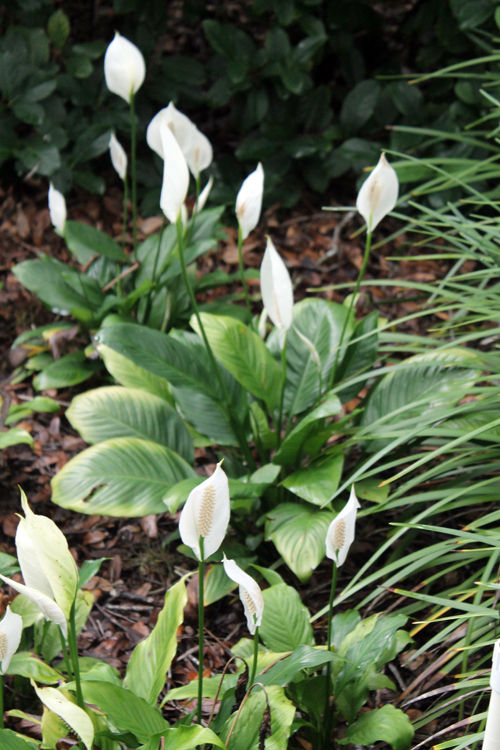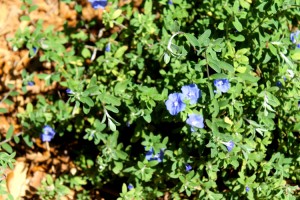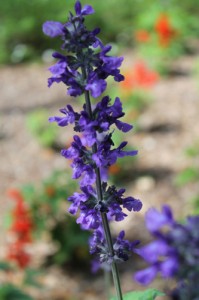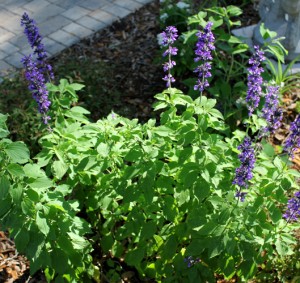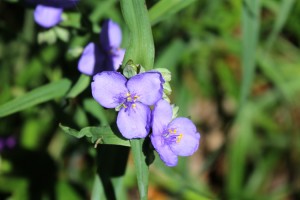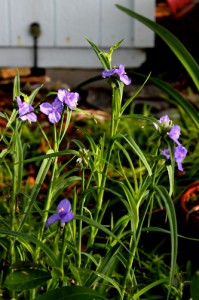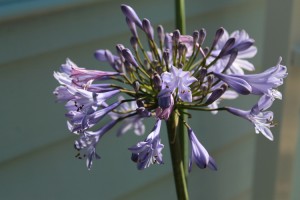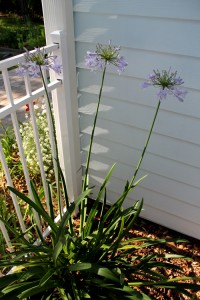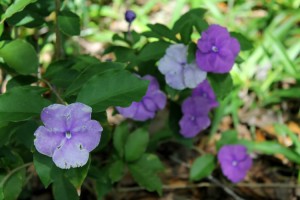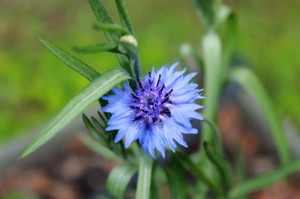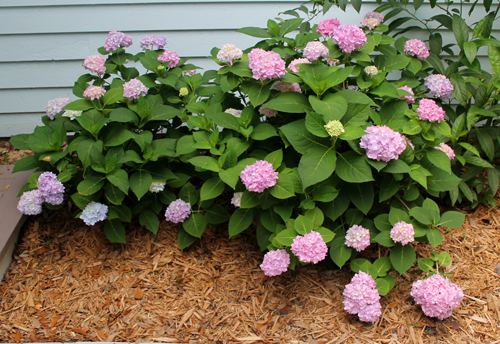
Back in 2010 I bought two blue hydrangeas and planted them in my “blue and white” garden. They immediately turned pink. Although it’s a very pretty pink, I really want BLUE! I’ve tried adding aluminum sulfate around the plants but the blooms continue to be a shade of pink and maybe a little lavender. There is just too much lime in our soil. But that’s off the subject, here. This post is about creating more plants with very little effort and NO money!
Shortly after I planted the two hydrangeas, Southern Living had an article about rooting French hydrangeas. I successfully followed their instructions and now have seven additional hydrangeas!
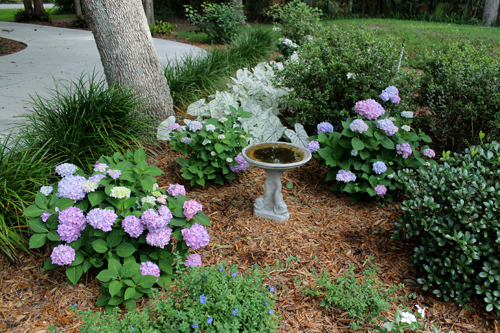
I also tried rooting a shooting star hydrangea that Michelle gave me. But that one didn’t grow. So I decided to try again.
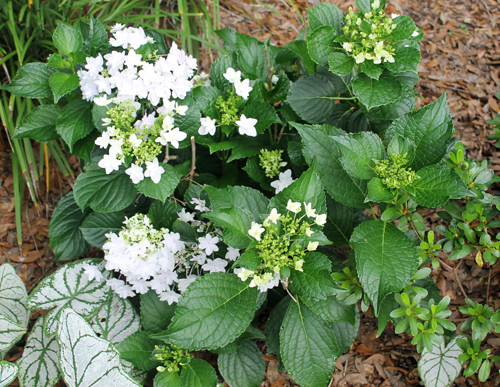
First, cut about a 6 inch stem and remove the lowest pair of leaves. Immediately stick the stem in water because hydrangeas will close up their stems very quickly. I cut two shooting stars and two of the pink hydrangeas.
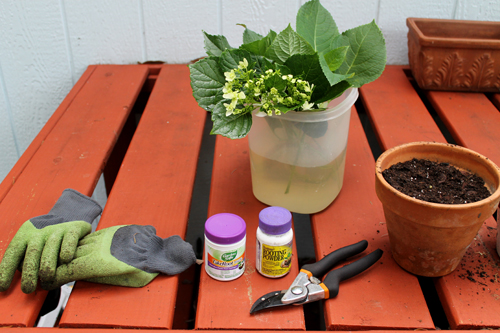
Dip the cutting into a rooting hormone. Sometimes it’s called rooting powder. I’ve used two different brands but they both have the same active ingredient, Indole-3-butyric acid. Walmart, Home Depot, Lowes–they all carry it.
Have a pot ready with moist potting soil–I use Miracle Gro. (I’ve experimented with other potting soils and you really can see a difference!) You can just stick the cutting into the container but it makes the rooting hormone dirty eventually so now I pour it into the cap and roll the cutting around in it. I make a hole in the soil with my finger then stick in the cutting and press the soil firmly around it.
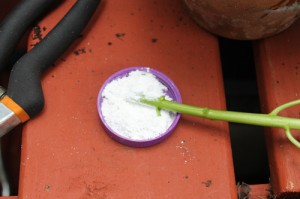
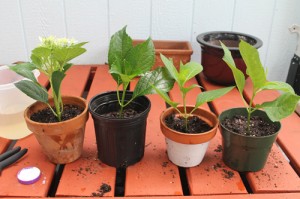
Next I put the pots in the shade and will keep them watered. They will look dead at first, but in a few months, I should have thriving plants! I’ll give you an update!
Since I’m on the subject of hydrangeas, let me give you a few tips on how I take care of them. They like morning sun and a LOT of water! I tried planting them in the shade but they didn’t bloom nor thrive. They will live with afternoon sun but not happily. If they get droopy, water them–then ignore them. They will be all perky again the next morning.
The type of hydrangeas that I have grow on both old and new growth so I can cut them for bouquets and still get new blooms. There are “lacecap” and “mophead” varieties.
You can also dry the blooms which I usually do right before our first freeze is predicted. My hydrangeas bloom from early spring until that freeze and the only problem I have with them is that they develop ugly brown spots in the Fall which is probably caused by all the watering. I recently read an article about using a fungicide containing thiophanate-methyl at first signs of spotting. So that’s on my shopping list for the next time I’m at a nursery.
So, while my “blue” hydrangeas continue to defy me with their color change, they are my favorite flower.
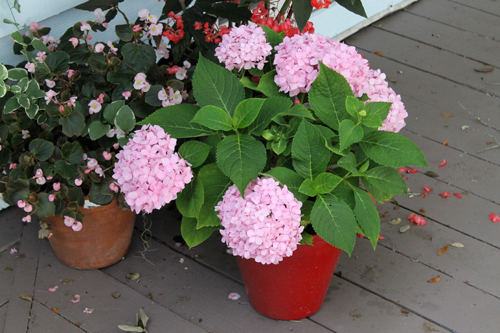
My next garden post will be other plants that I’ve rooted!

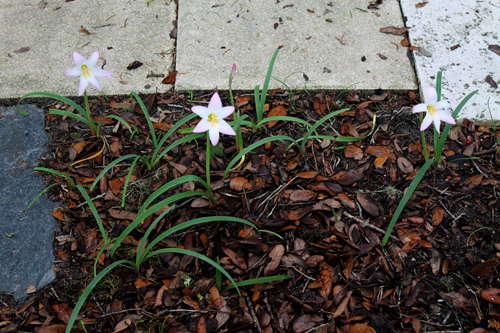
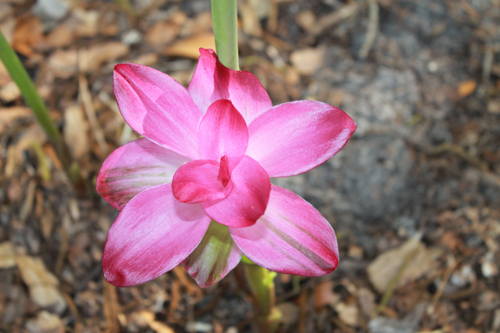
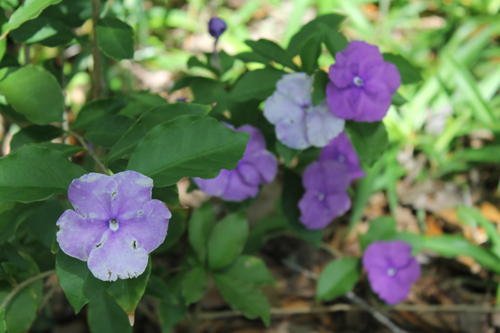
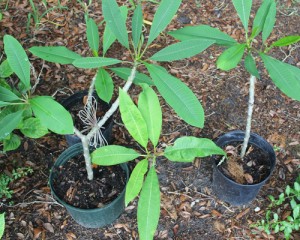
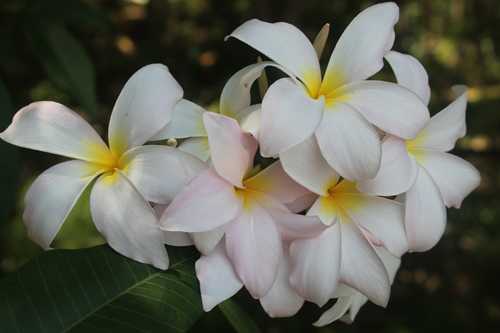
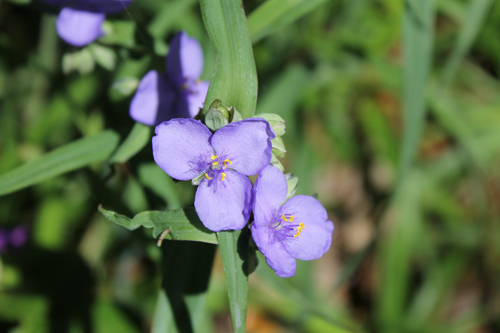
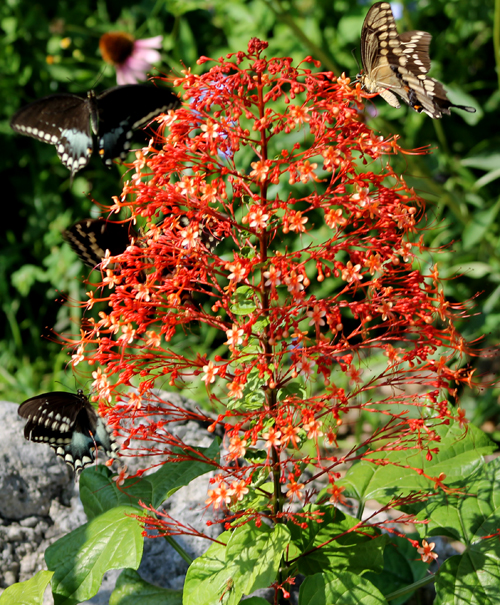 Michelle has given me several plants, too. One is a lily that refuses to bloom. She’s also given me a few succulents–that the squirrels absolutely adore. Nibble Nibble Nibble. And just as a gift that she thought I’d like she bought me a shooting star hydrangea which is gorgeous. Yes, I do like it. A lot.
Michelle has given me several plants, too. One is a lily that refuses to bloom. She’s also given me a few succulents–that the squirrels absolutely adore. Nibble Nibble Nibble. And just as a gift that she thought I’d like she bought me a shooting star hydrangea which is gorgeous. Yes, I do like it. A lot.